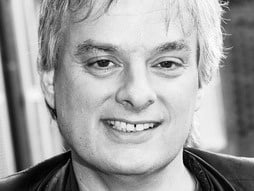The hard problem of consciousness
The hard problem of consciousness refers to the problem one encounters when trying to explain how and why physical states (such as brain processes) can become conscious.
There is no explanation that explains why a subject has perception traits at all, such as an experience or perception of taste or color, or qualia.
Phenomenal experiences
The philosopher David Chalmers introduced the term and contrasts it with a number of relative “easy problems” that are quite difficult to explain on their own. Chalmers emphasizes that the easy problems all represent a capacity or execution of functions or behaviors. For example, distinguishing, categorizing and responding to stimuli from the environment, integrating information through cognitive process and reporting mental states. The easy problems are easy because they can be explained by indicating a mechanism that performs a certain function. In this sense, the easy problems are entirely in line with the materialistic conception of natural phenomena. Chalmers claims that the difficult problem of consciousness is separate from its functions and behaviors, and that the difficult problem will persist even when all functions and behaviors are explained.
There are also similar problems and concepts such as the mind-body problem, the problem of mental causation, and the explanation gap.
Controversial
The existence of a “difficult problem” is controversial. It has been accepted by philosophers such as Joseph Levine, [ Colin McGinn, and Ned Block and cognitive neuroscientists such as Francisco Varela, Giulio Tononi, and Christof Koch, but contested by philosophers such as Daniel Dennett, Massimo Pigliucci, and Keith Frankish and cognitive neuroscientists such as Stanislas Dehaene, Bernard Baars, and Antonio Damasio.
For further reading see: full wikepedia article
Prof.Donald Hoffman gives an interesting perspective on the ‘hard problem’ in his work on Conscious Agent Theory: see also: /prof-donald-hoffman-on-conscious-agent-theory

